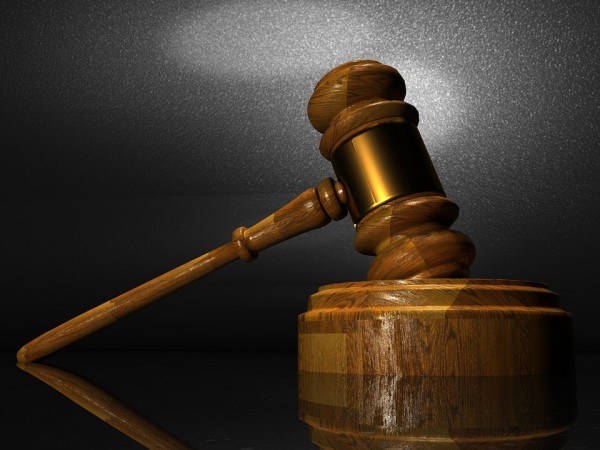Governor announces granting of 10 pardons
While in office, Newsom has granted a total of 140 pardons, 123 commutations, and 35 reprieves
– California Governor Gavin Newsom this week announced that he has granted 10 pardons.
The California Constitution gives the governor the authority to grant pardons. The governor says he regards clemency as an important part of the criminal justice system that can incentivize accountability and rehabilitation and increase public safety by removing counterproductive barriers to successful reentry. A pardon may also remove unjust collateral consequences of conviction, such as deportation and permanent family separation.
Pardons do not forgive or minimize the harm caused by crime. Instead, these pardons recognize the pardon grantees’ self-development and rehabilitation since then, according to the governor’s office.
Newsom said he weighs numerous factors in his review of clemency applications, including an applicant’s conduct since the offense, whether the grant is consistent with public safety and in the interest of justice, and the impact of a grant on the community, including crime victims and survivors.
While in office, he has granted a total of 140 pardons, 123 commutations, and 35 reprieves.
Pardons were granted to the following people:
John Berger, a resident of California, has applied for executive clemency. On June 2, 1995, the Superior Court of California, County of Sacramento, sentenced Berger to four years of probation and 60 days in jail for transporting a controlled substance. Berger has complied with the provisions of the California Penal Code which provide a procedure after completion of sentence to seek restoration of civic rights and responsibilities. On June 18, 2020, the Superior Court of California, County of Sacramento, granted Berger a Certificate of Rehabilitation on evidence that he has been living an upright life. By granting Berger’s petition for a Certificate of Rehabilitation, the court has recommended that he be granted a full pardon.
Lucas Beltran Dominguez, a resident of California, has applied for executive clemency. On Sept. 17, 2008, the Superior Court of California, County of Tulare, sentenced Dominguez to three years of probation for transporting or selling marijuana and possession of marijuana for sale. Dominguez has submitted to this office a formal application for executive clemency in the form of a gubernatorial pardon. He has provided evidence that he is living an upright life and has demonstrated his fitness for restoration of civic rights and responsibilities. Dominguez has also presented evidence that a collateral consequence of his conviction, namely, his impending deportation and permanent separation from his family and removal from his community, further justifies this exercise of executive clemency.
Michael Farrier, a resident of California, has applied for executive clemency. On March 5, 1990, the Superior Court of California, County of Placer, sentenced 21-year-old Farrier to five years of probation and 45 days in jail for first-degree burglary and second-degree robbery. Farrier has complied with the provisions of the California Penal Code, which provide a procedure after completion of sentence to seek restoration of civic rights and responsibilities. On March 28, 2018, the Superior Court of California, County of Placer, granted Farrier a Certificate of Rehabilitation on evidence that he has been living an upright life. By granting Farrier’s petition for a Certificate of Rehabilitation, the court has recommended that Farrier be granted a full pardon.
Kimberly Gregorio, a resident of California, has applied for executive clemency. On Nov. 22, 1988, the Superior Court of California, County of Sacramento, sentenced 23-year-old Gregorio to four years of probation and 180 days in jail for possession of a controlled substance for sale and obstructing an officer. Gregorio has complied with the provisions of the California Penal Code, which provide a procedure after completion of sentence to seek restoration of civic rights and responsibilities. On Feb. 8, 2021, the Superior Court of California, County of Sacramento, granted Gregorio a Certificate of Rehabilitation on evidence that she has been living an upright life. By granting Gregorio’s petition for a Certificate of Rehabilitation, the court has recommended that Gregorio be granted a full pardon.
James King, Ill, a resident of Nevada and former resident of California, has applied for executive clemency. On Dec. 15, 1988, the Superior Court of California, County of Los Angeles, sentenced King to three years of probation and 180 days in jail for the sale of cocaine. King has submitted to this office a formal application for executive clemency in the form of a gubernatorial pardon. He has provided evidence that he is living an upright life and has demonstrated his fitness for the restoration of civic rights and responsibilities.
Santiago Lopez, a resident of California, has applied for executive clemency. On Aug. 21, 2000, the Superior Court of California, County of San Diego, sentenced Lopez to three years of probation and 113 days in jail for possession of marijuana for sale. On Aug. 5, 2004, the same court sentenced Lopez to a fine for possession of marijuana for sale. On July 27, 2001, the Superior Court of California, County of Tulare, sentenced Lopez to three years in prison for possession of a controlled substance for sale and possession of marijuana for sale. Lopez has submitted to this office a formal application for executive clemency in the form of a gubernatorial pardon. He has provided evidence that he is living an upright life and has demonstrated his fitness for restoration of civic rights and responsibilities.
Kenneth Lyerly, a resident of California, has applied for executive clemency. On Jan. 30, 2004, the Superior Court of California, County of Orange, sentenced Lyerly to three years of probation and 120 days in jail for possession of a controlled substance for sale. Lyerly has complied with the provisions of the California Penal Code, which provide a procedure after completion of sentence to seek restoration of civic rights and responsibilities. On May 25, 2018, the Superior Court of California, County of Orange, granted Lyerly a Certificate of Rehabilitation on evidence that he has been living an upright life. By granting Lyerly’s petition for a Certificate of Rehabilitation, the court has recommended that he be granted a full pardon.
Jimmy Platen, a resident of Florida and former resident of California, has applied for executive clemency. In 1973, the Superior Court of California, County of Los Angeles, sentenced Platen to 12 months of probation. for trespassing. On April 6, 1978, the same court sentenced Platen to four years of probation for possession of a controlled substance for sale. Platen has complied with the provisions of the California Penal Code which provide a procedure after completion of sentence to seek restoration of civic rights and responsibilities. On Nov. 19, 1998, the Superior Court of California, County of Los Angeles, granted Platen a Certificate of Rehabilitation on evidence that he has been living an upright life. By granting Platen’s petition for a Certificate of Rehabilitation, the court has recommended that he be granted a full pardon.
Julie Ruehle, a resident of Wisconsin and former resident of California, has applied for executive clemency. On June 24, 1999, the Superior Court of California, County of Kern, sentenced 19-year-old Ruehle to two years in prison, a concurrent term for two cases, one for possession of a controlled substance and the other for taking a vehicle without consent. Ruehle submitted a formal application for executive clemency in the form of a gubernatorial pardon. She has provided evidence that she is living an upright life and has demonstrated her fitness for restoration of civic rights and responsibilities. Ruehle’s pardon application was reviewed by the Board of Parole Hearings, which voted at an en bane meeting to recommend a clemency grant. The California Supreme Court also made a recommendation for a clemency grant, a process required by the California Constitution for cases in which the applicant has been convicted of more than one felony.
Copies of the gubernatorial clemency certificates can be found here.
Victims, survivors, and witnesses are encouraged to register with CDCR’s Office of Victim and Survivor Rights and Services to receive information about an incarcerated person’s status. For general Information about victim services, to learn about victim-offender dialogues, or to register or update a registration confidentially, visit www.cdcr.ca.gov/Victim_Services/ or call 1-877-256-6877 (toll-free).
Additional information on executive clemency can be found here.





















